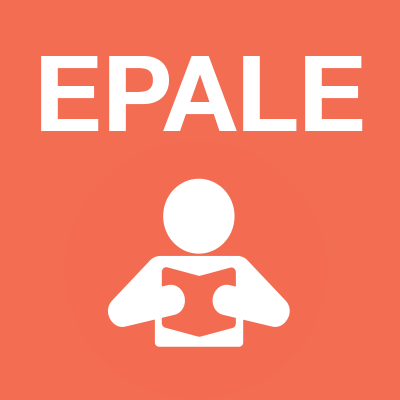
Learning City and Region, Community Learning
This community brings together project actors, experts and stakeholders concerned with the development of Learning Cities and Regions.
www.youtube.com/watch
This is one out of six video tutorials on 'How to build a learning city', which has been produced by UIL UNESCO. The full series will be launched in March 2018, including subtitles in all six UN Languages. Those videos provide insights into the core areas of action for building a learning city: Planning, involving stakeholders, celebrating learning, making learning accessible to all, monitoring and evaluating progress and funding.
How to build a learning city? Involve all...
This is one out of six video tutorials on 'How to build a learning city'. The full series will be launched in March 2018, including subtitles in all six UN Languages. Those videos provide insights into the core areas of action for building a learning city: Planning, involving stakeholders, celebrating learning, making learning accessible to all, monitoring and evaluating progress and funding.
www.irishexaminer.com/ireland/pole-fitness-classes…
www.architectureanddesign.com.au/features/comment/…
Director of award-winning architecture practice Bates Smart, Philip Vivian, says, the move to collaborative learning is changing the way we design schools and other similar facilities, which he notes, “In our knowledge economy, with computers and mobile devices enabling learning, education has fundamentally shifted from a paradigm whereby knowledge is imparted to students, to one where knowledge is gained collaboratively among a group.”
On the other hand, “with cities experiencing increasing urbanisation, and pressure on limited land resources, we are seeing the increasing density of education institutions. One very obvious solution is to go vertical”.
“Vertical campuses will be a major consideration for education developments in the short term, and they are a more sustainable way to build.”
www.discuss-community.eu/learning-cities-and-regio…
The European Commission just launched the new Urban Data Platform, which gives access to shared indicators on the status and trends of over 800 European urban areas – on a variety of themes, such as demography, urban development, economic development, transport and accessibility, environment and climate, resource efficiency and social issues. The portal also offers a selection of indicators related to issues and problems of education in European urban areas.
www.uil.unesco.org/lifelong-learning/project/more-…
pascalobservatory.org/pascalnow/pascal-activities/…-
Now available from the PASCAL OBSERVATORY website: E-Report on the 13th PASCAL International Conference - Learning Cities 2040, University of Glasgow.
www.elmmagazine.eu/articles/serving-the-whole-city
VHS Düsseldorf folk high school is one of the biggest adult education institutions in Germany. To cater for a whole city, and yet stand out among other providers - how is it done? The VHS's Head of English Barbara Jansing explains.
learningcities.uil.unesco.org/news-and-events/news…
The UNESCO Institute for Lifelong Learning just announced that the 2017 International Conference on Learning Cities will take place in Cork City, Ireland.
The 3rd International Conference on Learning Cities promises to be another important step forward in placing lifelong learning at the centre of sustainable city development. Dates and further details will be announced soon.




www.uil.unesco.org/lifelong-learning/project/devel…
UNESCO Institute for Lifelong Learning (UIL) reports occurence of three major events on developing learning cities. The events, which were held in Beijing, Hangzhou and Shanghai respectively, focused on identifying future directions for learning cities in China.
paper.li/obspascal/1440444718
John Tibbitt (Pascal Observatory) just announced first release of paper.li page "#learningcities weekly" - Learning Cities: Keep up to date with Learning Cities Weekly. Thanks for mentioning #DiscussCommunity.
www.discuss-community.eu/community/events/vieweven…
Workshop: Adult Education in Cities and Regions – A European perspective
Topic 1: Projects and practice of adult education in cities and regions
Topic 2: International perspectives: Policies, governance und adult learning providers
Feel free to apply for a workshop with your project about Adult Education in Citites and Regions. If interested contact Bernhard@bibb.de.
8th & 9th of September 2016
Volkshochschule Aachen
Peterstraße 21-25, 52062 Aachen, Germany
www.uil.unesco.org/lifelong-learning/project/learn…
Learning cities in Greece: Trikala joins the UNESCO Global Network of Learning Cities. Trikala is working to increase its citizens’ access to both formal and non-formal lifelong learning opportunities.
ec.europa.eu/epale/en/blog/learning-city-resurge
Michael Osborne on European Commission's EPALE recently shared some thoughts on UNESCO's learning city initiative, concluding that ...
'we need to re-focus our thinking in Europe along the lines that UNESCO is promoting. A simple yet effective instrument might be to create a European City of Lifelong Learning award to parallel other city designations. I am convinced that such an award would interest many of our cities In Europe, and would lead to many benefits for all involved.'
The full article is available from EPALE. Just follow the link above.




we fixed the software bug reported by you earlier on. All notification emails now include the link to the original message. Again, thanks for reporting.
Randolph Il y a 8 ans


www.discuss-community.eu/learning-cities-and-regio…
More and more people are living, working and spending their free time in cities. Cities offer fertile ground to start new business, provide platforms for cultural dialogue and diversity, and are incubators for innovation. With the current (European) trend towards urbanisation, the importance of cities and urban areas will continue to grow. This growth is accompanied by complex challenges, including an ever greater risk of segregation, increased criminality and environmental problems.
On 30. May 2016 an informal meeting of EU Ministers with responsibility for urban affairs took place in Amsterdam, at the initiative of the Dutch Presidency. During this meeting an "Urban Agenda for the EU", also called "Pact of Amsterdam", has been established. EU Member States, cities, European institutions and other stakeholders will be working together for a sustainable, socially inclusive, innovative and economically powerful Europe.
www.sustainablecitiescollective.com/klaus-philipse…
Urban planner Klaus Philipsen just blogged: "Smart cities will only really be smart if a large number of people can participate in the process of setting goals, policies, data review and general interaction."
learningcities.uil.unesco.org/news-and-events/news…
Learning cities in Italy: Turin just joined the UNESCO Global Network of Learning Cities
Learning cities in Italy are experiencing an exciting development as Turin becomes the country’s first city to join the UNESCO Global Network of Learning Cities. Turin is committed to creating a widespread culture of learning and favoring learning in families and communities, fostering the use of modern learning technologies and enhancing a sustainable use of resources. Turin has been promoting educational initiatives through the ‘Educating City Initiative’ since 1995 and is currently working to streamline lifelong learning in its development towards a sustainable learning city.
Turin underwent major urban regeneration in the mid-1990s, which led to a cultural and economic renaissance in the city. However, the repercussions of the 2008 global financial crisis slowed down Turin’s economic development. To alleviate the effects of the crisis, Turin...learningcities.uil.unesco.org/news-and-events/news…
Learning cities in Italy: Turin just joined the UNESCO Global Network of Learning Cities
Learning cities in Italy are experiencing an exciting development as Turin becomes the country’s first city to join the UNESCO Global Network of Learning Cities. Turin is committed to creating a widespread culture of learning and favoring learning in families and communities, fostering the use of modern learning technologies and enhancing a sustainable use of resources. Turin has been promoting educational initiatives through the ‘Educating City Initiative’ since 1995 and is currently working to streamline lifelong learning in its development towards a sustainable learning city.
Turin underwent major urban regeneration in the mid-1990s, which led to a cultural and economic renaissance in the city. However, the repercussions of the 2008 global financial crisis slowed down Turin’s economic development. To alleviate the effects of the crisis, Turin developed the Metropolitan Torino 2025 Strategic Plan, which sets out plans for twenty-nine projects focusing on empowering citizens, promoting inclusion and boosting cultural and economic prosperity. These projects involve close cooperation between the city’s municipalities and local and international organizations from both the public and private sectors.
Afficher plus
www.ted.com/watch/ted-institute/ted-bcg/julia-kloi…
When it came to getting public consensus on a complex plan to convert the epic Tempelhof Airport into something new, Berlin sought an effective way to communicate the nuances of the various proposals. The solution? A computer coder synthesized the information from all the options into a simple infographic, leading to an informed vote by the public. Julia Kloiber argues for the release of government data so coders can unscramble it for the public good.
Julia Kloiber is Project Lead at the Open Knowledge Foundation Germany. She has a background in design and media theory and works on civic tech and open data projects. Her latest projects include a civic tech incubator “Stadt Land Code” and the community program “Code for Germany”.
nl.campus-party.org/
A quick tip:
the 4th Campus Party CPEU4 is currently taking place in Netherlands (25-29 May). Roughly half a million people from all over ther world are participating in the event.
You can follow hundreds of speakers on stage, workshops, and challenges (extra sessions to taking discussion results to action) via live stream, some of which are directly or indrectly related to learning cities and regions.
Have a nice day
Randolph
www.youtube.com/watch
UNESCO invites applications for the UNESCO Learning City Award 2017
The UNESCO Learning City Award has been established to encourage and reward progress achieved in developing learning cities around the world. The Award is conferred on cities that have achieved outstanding progress in building learning cities by implementing the Key Features of Learning Cities, i.e. by:
- promoting inclusive learning from basic to higher education;
- revitalizing learning in families and communities;
- facilitating effective learning for and in the workplace;
- extending the use of modern learning technologies;
- enhancing quality and excellence in learning; and
- fostering a culture of learning throughout life.
To apply for the Award, cities must complete the Award Application Form and gather any necessary supporting material, the mayor sign the Award Application Form, sign the Consent Form (included in the Award Application Form), send the application to their country’s...www.youtube.com/watch
UNESCO invites applications for the UNESCO Learning City Award 2017
The UNESCO Learning City Award has been established to encourage and reward progress achieved in developing learning cities around the world. The Award is conferred on cities that have achieved outstanding progress in building learning cities by implementing the Key Features of Learning Cities, i.e. by:
- promoting inclusive learning from basic to higher education;
- revitalizing learning in families and communities;
- facilitating effective learning for and in the workplace;
- extending the use of modern learning technologies;
- enhancing quality and excellence in learning; and
- fostering a culture of learning throughout life.
To apply for the Award, cities must complete the Award Application Form and gather any necessary supporting material, the mayor sign the Award Application Form, sign the Consent Form (included in the Award Application Form), send the application to their country’s National Commission for UNESCO by 31 August 2016.
uil.unesco.org/lifelong-learning
Afficher plus
UNESCO Learning City Award 2017
UNESCO invites applications for the UNESCO Learning City Award 2017. This Award will be conferred on cities that demonstrate exemplary commitment to promoting inclusive education and lifelong learning at the local level. http://learningcities.uil.unesco.org/about-us/learning-city-award
-
This community brings together project actors, experts and stakeholders concerned with the development of Learning Cities and Regions.
-
Catégorie
Promoting social and economic cohesion through advanced adult education opportunities -
Créé
jeudi 4 septembre 2014 -
Administrateurs du groupe
Admin, LINGUA-IN-CITY Project






























